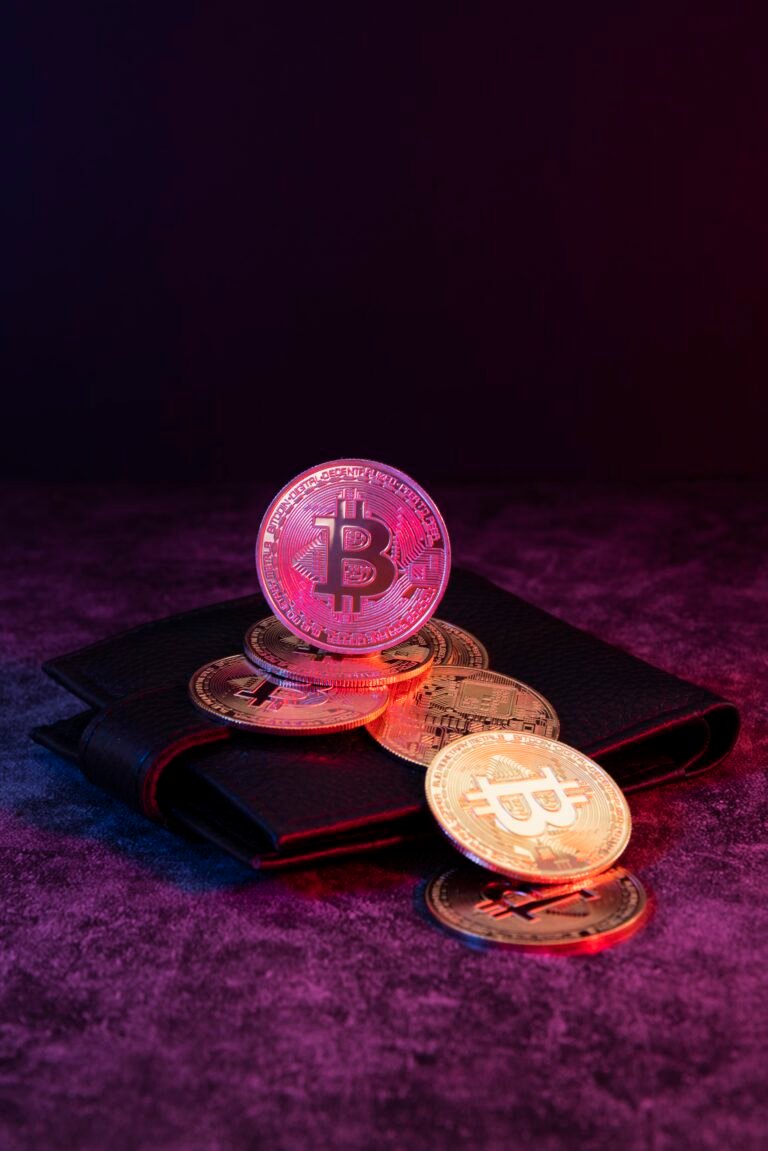Top 20 Crypto Terms You Must Know Before Investing
1. Why Crypto Lingo Matters
Decode the Jargon Before You Risk Your Money
Crypto Terms: Diving into the world of crypto without knowing the lingo is like walking into the stock market with your eyes closed. The industry is full of buzzwords, acronyms, and technical terms that can confuse even the smartest investors if they’re new to the space.

Table of Contents
Understanding Terms = Smarter Decisions
Whether you’re buying your first Bitcoin or exploring altcoins and DeFi platforms, knowing the language gives you a major edge. Understanding what a “rug pull” is could save you from a scam. Knowing the difference between a token and a coin might stop you from making a rookie mistake.
2. Foundational Terms Every Investor Should Know
Before you start trading or investing, it’s crucial to understand the basics. These are the core concepts that everything in the crypto world is built upon. Master these, and you’ll be ahead of most beginners.
1. Blockchain
A blockchain is a decentralized digital ledger. Think of it like a spreadsheet that’s duplicated across thousands of computers. It records transactions in blocks, which are chained together. This technology powers all cryptocurrencies.
2. Cryptocurrency
Cryptocurrency is a type of digital or virtual money that uses cryptography for security. Unlike traditional currencies, it isn’t issued by a central authority. Examples include Bitcoin, Ethereum, and Solana.
3. Wallet
A crypto wallet is where you store your coins and tokens. It can be a physical device (hardware wallet), software app, or even a browser extension. Wallets don’t hold your crypto—they store your private keys, which give you access to your funds.
4. Exchange
A crypto exchange is a platform where you can buy, sell, or trade cryptocurrencies. There are two main types:
- Centralized Exchanges (CEX) like Binance and Coinbase
- Decentralized Exchanges (DEX) like Uniswap and PancakeSwap
3. Must-Know Market Terms for Traders
Once you understand the basics, it’s time to learn the language of the market. These terms help you interpret price movements, market trends, and overall investor sentiment—so you can make smarter trading decisions.
5. Bull Market
A bull market is when prices are rising or expected to rise. It’s a time of optimism, heavy buying, and upward momentum. Bulls believe the price will go up—and act accordingly.
6. Bear Market
A bear market is the opposite—prices are falling, and investor confidence is low. Bears anticipate further decline, often selling off assets to avoid losses.
7. Market Cap (Market Capitalization)
Market cap is the total value of a cryptocurrency, calculated by multiplying the current price by the total circulating supply.
Formula: Market Cap = Price × Supply
It helps you compare the size and potential of different projects.
8. Volume
Volume measures how much of a cryptocurrency is traded over a specific period (usually 24 hours). High volume means high activity and liquidity; low volume can indicate weak interest or price manipulation risk.
4. Crypto-Specific Terms That Confuse Beginners
The crypto world has its own unique slang and technical terms that can trip up even experienced investors. These are the concepts that aren’t always explained—but absolutely should be.
9. Altcoin
An altcoin is any cryptocurrency other than Bitcoin. Ethereum, Solana, Cardano, and thousands of others fall into this category. While Bitcoin leads the market, many altcoins offer unique features and use cases.
10. Token
A token is a type of digital asset that exists on top of another blockchain (usually Ethereum or another smart contract platform). Not all tokens are currencies—they can represent anything from voting rights in a DAO to access to a service.
Quick Tip: All tokens are cryptocurrencies, but not all cryptocurrencies are tokens.
11. Gas Fees
Gas fees are transaction fees on blockchains like Ethereum. You pay gas to execute actions like sending tokens, swapping coins, or interacting with smart contracts. Fees can fluctuate based on network demand.
12. Mining & Staking
These are two ways to earn crypto:
- Mining: Using computer power to validate transactions (common in Bitcoin).
- Staking: Locking your coins in a network to help validate transactions and earn rewards (used in proof-of-stake blockchains like Ethereum 2.0, Cardano, etc.).
5. Risk and Strategy Terms You Should Understand
Crypto investing isn’t just about knowing what to buy—it’s about avoiding traps and managing your emotions. These common terms reflect real strategies, risks, and psychological patterns that every investor should recognize.
13. HODL
Originally a typo for “hold,” HODL has become a meme and a mindset. It means holding onto your crypto through market ups and downs—based on the belief that long-term gains outweigh short-term dips.
14. FOMO (Fear of Missing Out)
FOMO drives impulsive decisions—like buying a coin just because it’s pumping. It’s a dangerous emotion in crypto, often leading people to buy high and sell low.
15. FUD (Fear, Uncertainty, Doubt)
FUD refers to negative news, rumors, or fear-driven narratives that cause panic selling or hesitation. Sometimes it’s real—but often it’s spread to manipulate prices.
16. Rug Pull
A rug pull happens when a crypto project’s developers suddenly withdraw all funds and disappear—leaving investors with worthless tokens. It’s one of the most devastating crypto scams.
Always DYOR (Do Your Own Research) to avoid getting rugged.
6. DeFi & Web3 Buzzwords You’ll Hear Everywhere
As crypto evolves beyond just coins and trading, new ecosystems like DeFi and Web3 bring a fresh wave of innovation—and vocabulary. These terms are key to understanding the next generation of crypto technology.
17. DEX (Decentralized Exchange)
A DEX is a trading platform that operates without a central authority. Instead of relying on a company to manage your trades (like Binance or Coinbase), DEXs like Uniswap let users trade directly with each other via smart contracts.
You keep control of your funds—no middlemen, no KYC.
18. Smart Contract
A smart contract is a self-executing code on the blockchain that automatically performs actions when certain conditions are met. They power everything in DeFi—from swapping tokens to lending, borrowing, and gaming.
19. Yield Farming
Yield farming is a strategy where users earn interest or rewards by lending or providing liquidity to DeFi protocols. It’s like putting your crypto to work—but with higher risks than traditional savings.
20. DAO (Decentralized Autonomous Organization)
A DAO is a community-led organization with no central leadership. Decisions are made via proposals and votes, typically using governance tokens. Think of it as a blockchain-based co-op for managing funds, products, or protocols.
7. Bonus: How to Keep Learning
Where to Stay Updated on Crypto Lingo
Crypto is fast-moving. New terms, tools, and trends emerge constantly. What’s hot today might be outdated next month—so staying updated isn’t optional, it’s essential.
The good news? There are plenty of reliable sources where you can keep sharpening your crypto vocabulary and understanding.
Best Forums, News Sites, and Twitter Accounts
🔹 Crypto Forums
- Reddit – Subreddits like r/CryptoCurrency and r/ethfinance are goldmines for real discussion.
- Bitcointalk – One of the oldest forums, filled with deep dives and historical context.
- StackExchange Crypto – Ideal for technical Q&A and definitions.
🔹 News Sites
- CoinDesk – Daily news, opinion pieces, and glossary pages.
- CoinTelegraph – Great for visual learners with infographics and updates.
- The Block – More advanced, with deep reporting for serious investors.
🔹 Twitter/X Accounts
- @APompliano, @CryptoCobain, @TheDefiEdge – For a mix of education, news, and memes.
- @cz_binance, @VitalikButerin – For updates directly from major figures in the space.
- @WuBlockchain – For timely updates, especially on Asia’s crypto scene.
Tip: Follow hashtags like #CryptoNews, #DeFi, #Web3, and #Altcoins to spot trends early.
8. Conclusion: Know the Terms, Avoid the Traps
Understanding crypto terms isn’t just about sounding smart—it’s about protecting your money and making confident decisions in one of the fastest-moving financial markets on the planet.
The difference between falling for a rug pull or spotting a promising DeFi project early often comes down to your knowledge. By mastering the 20 key terms in this guide, you’ve already taken a big step toward becoming a smarter, safer crypto investor.
But don’t stop here. Crypto is constantly evolving, and staying informed is your best defense and greatest advantage.
🚀 Learn the language. Understand the risks. Play the long game.
9. FAQs: Understanding Crypto Terminology
Q1. Why is it important to learn crypto terms before investing?
Because crypto is a technical and fast-moving space, knowing key terms helps you avoid scams, make informed decisions, and understand how different projects work.
Q2. What’s the difference between a coin and a token?
A coin operates on its own blockchain (e.g., Bitcoin, Ethereum), while a token is built on top of another blockchain (e.g., ERC-20 tokens on Ethereum).
Q3. Is HODLing a good strategy for beginners?
Yes—HODLing is a long-term strategy often recommended for beginners who want to avoid emotional trading and focus on big-picture growth. But always research the project you plan to hold.
Q4. How do I know if a project is a potential rug pull?
Red flags include anonymous teams, no audits, unrealistic returns, and locked liquidity for a short period. Always DYOR (Do Your Own Research).
Q5. What are gas fees, and why do they vary?
Gas fees are transaction fees on blockchains like Ethereum. They fluctuate based on network congestion and complexity of the transaction.
Q6. Where can I practice using crypto terms in real discussions?
Try joining communities like r/CryptoCurrency, crypto Discords, or Twitter/X threads. You’ll learn faster by engaging.
Read Also: 15 Beginner-Friendly Crypto Guides to Read in 2025


